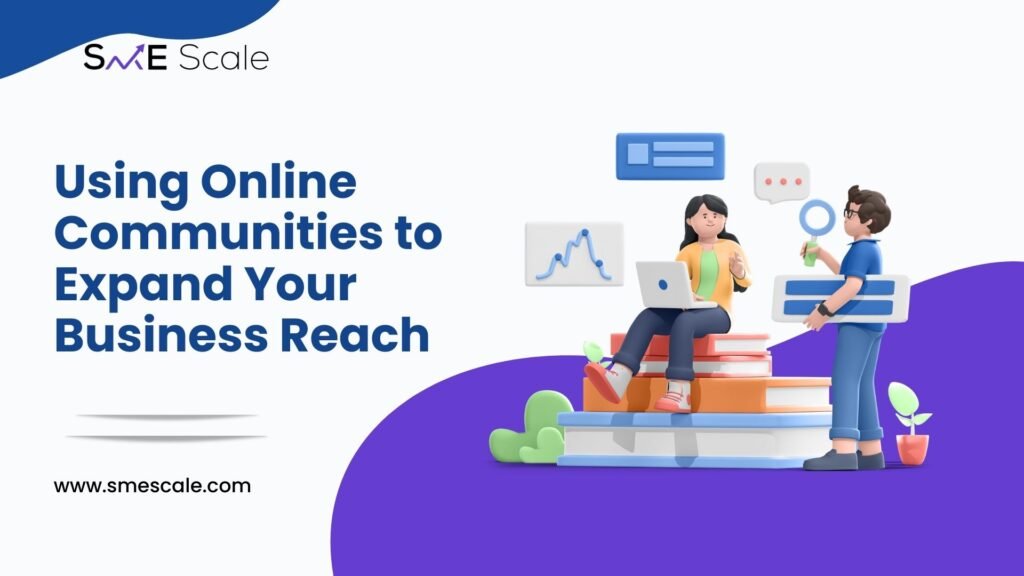
In today’s digital-first world, online communities have emerged as powerful tools for businesses to connect with their audience, enhance brand visibility, and drive growth. For small and medium-sized enterprises (SMEs), leveraging online communities can offer a cost-effective and impactful way to expand their business reach. This blog explores how SMEs can utilize online communities, provides a real-life case study of SME Scale’s success with this approach, and delves into the psychology behind why these communities work.
Why Online Communities Matter for SMEs
Online communities—whether they exist on social media platforms, forums, or niche interest groups—are places where like-minded individuals gather to share insights, seek solutions, and engage with brands they trust. For SMEs, the benefits of tapping into these communities include:
Increased Brand Awareness:
Engaging in online communities allows businesses to showcase their expertise and establish authority in their niche.
Customer Engagement:
These platforms enable direct communication with customers, fostering loyalty and trust.
Lead Generation:
Online communities often consist of highly targeted audiences, making them excellent channels for lead generation.
Cost-Effective Marketing:
Unlike traditional advertising, participating in online communities is often free or requires minimal investment.
Valuable Feedback:
Communities provide an open channel for understanding customer needs, preferences, and pain points.
Case Study: How SME Scale Used Online Communities to Boost Client Success
SME Scale collaborated with EcoSolutions, a small business specializing in eco-friendly products, to expand their market reach. Despite offering innovative solutions, EcoSolutions struggled to gain traction in a competitive market. SME Scale recommended leveraging online communities to connect with environmentally conscious consumers.
Step 1: Identifying the Right Communities
SME Scale conducted an analysis of online platforms where EcoSolutions’ target audience was active. They identified several key communities, including Facebook groups focused on sustainable living, Reddit forums dedicated to eco-friendly products, and LinkedIn groups for green entrepreneurs.
Step 2: Building a Presence
EcoSolutions, guided by SME Scale, began participating actively in these communities. They shared educational content, answered questions about sustainable practices, and offered tips on reducing carbon footprints. This approach positioned EcoSolutions as a thought leader in their space.
Step 3: Hosting Webinars and AMAs
To deepen engagement, SME Scale organized webinars and “Ask Me Anything” (AMA) sessions within these communities. These events provided valuable insights to participants and subtly highlighted EcoSolutions’ products as solutions to common challenges.
Step 4: Collaborating with Influencers
Through their community research, SME Scale identified eco-conscious influencers who were active in these spaces. Partnering with these influencers helped EcoSolutions amplify their message and reach new audiences.
Results:
A 40% increase in website traffic within three months.
A 25% boost in social media followers, leading to higher engagement rates.
A significant uptick in sales attributed to community-driven leads.
This success demonstrated the power of online communities in creating meaningful connections and driving measurable business growth.
The Psychology Behind Online Communities
The effectiveness of online communities lies in their ability to foster trust, engagement, and loyalty. Here are the psychological principles that make them so impactful:
Social Proof:
People tend to trust recommendations from peers within a community. EcoSolutions benefited from this when community members shared their positive experiences.
Sense of Belonging:
Communities fulfill the human need to belong. By aligning with the values of their target audience, EcoSolutions strengthened its connection with potential customers.
Reciprocity:
Providing valuable content and insights for free creates a sense of obligation in community members, making them more likely to support the brand.
Authority:
Sharing expert advice and thought leadership enhances credibility, positioning businesses as go-to resources in their industry.
How SMEs Can Get Started with Online Communities
If you’re looking to expand your business reach using online communities, here’s how to get started:
Identify Your Audience:
Research where your target customers spend their time online. Look for relevant Facebook groups, Reddit forums, LinkedIn groups, or industry-specific platforms.
Participate Authentically:
Engage in discussions, answer questions, and share insights without pushing your products. Authenticity is key.
Create Valuable Content:
Share blogs, videos, and infographics that address your audience’s pain points. This establishes your brand as an authority.
Host Events:
Organize webinars, live Q&A sessions, or product demonstrations to engage your community further.
Collaborate with Influencers:
Partner with respected figures within the community to amplify your message and build credibility.
Measure and Optimize:
Track engagement metrics and leads generated through community participation. Use this data to refine your strategy.
Conclusion
Online communities are more than just social spaces—they’re powerful ecosystems where SMEs can build meaningful relationships, enhance brand visibility, and drive growth. The success story of EcoSolutions, powered by SME Scale’s expertise, highlights the transformative potential of leveraging these platforms.
If you’re ready to take your business to the next level, SME Scale can guide you in identifying and engaging with the right online communities. With their expertise in digital marketing, content creation, and growth strategies, SME Scale ensures measurable results in as little as 39 days.

